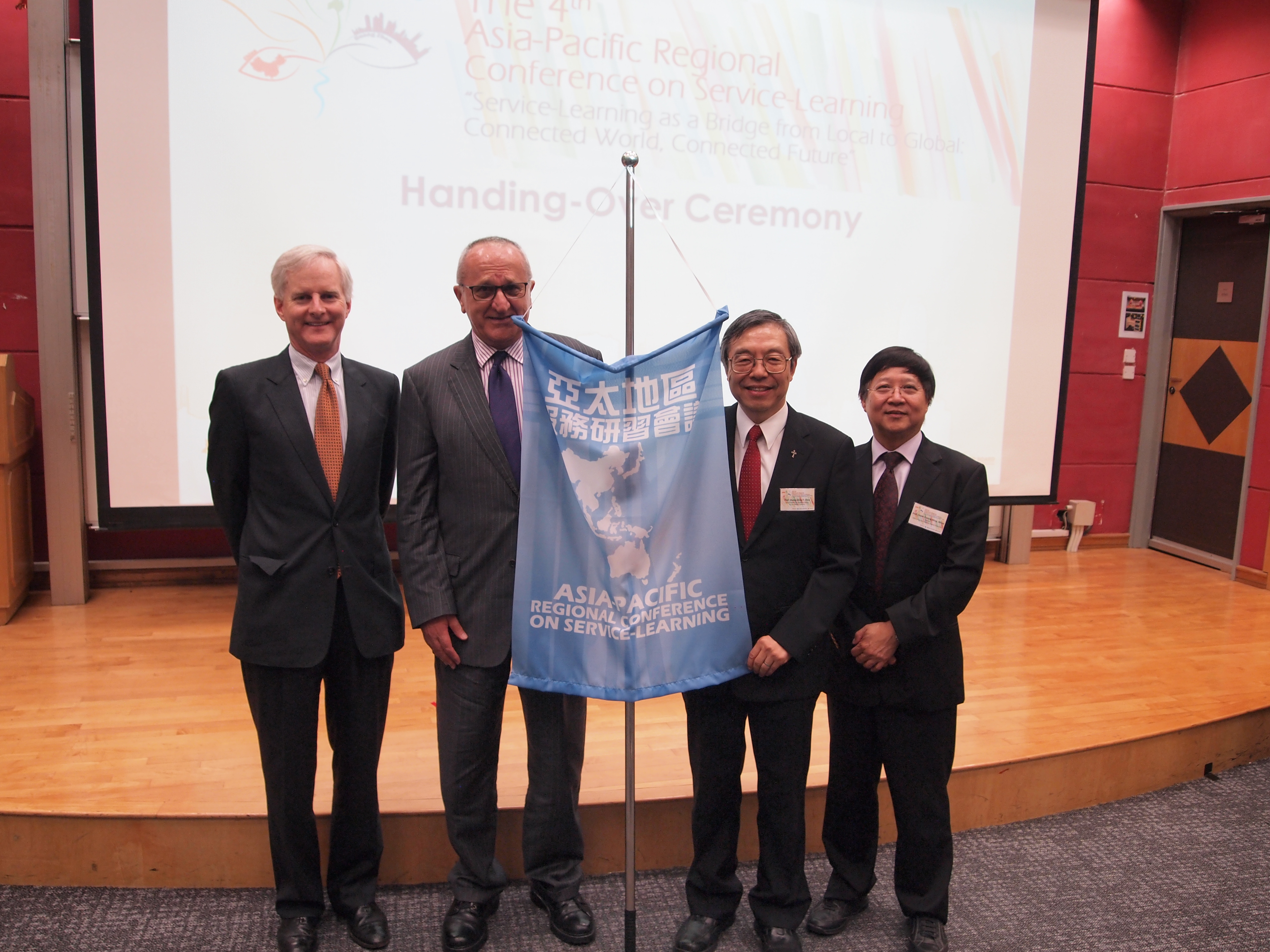Location
MD202, Paul Cardinal Shen Medical Building, Fu Jen University
Start Date
28-5-2015 4:30 PM
End Date
28-5-2015 5:40 PM
Description
Informed by previous research studies on assessment and feedback in service-learning (Deeley, 2015; 2014), this presentation aims to shed light on methods for enhancing students' learning. The presentation will begin with a brief summary of a research project currently being undertaken in a Scottish university. The presentation will then critically analyse the effects and implications of using technology in assessment that is constructively aligned (Biggs and Tang, 2011) to service-learning.
This presentation focuses on an aspect of the research study that involves assessment and feedback in service-learning. The summative assessment includes: a co-assessed oral presentation; a critical incident report; and a reflective journal. Students self-assess their own oral presentation and negotiate a mutually agreed mark with the teacher, who also assesses their presentation. This enables students to compare their self-assessment with the teacher's feedback. Firstly, the study investigates the use of video recording students' presentations to enhance this process. Secondly, to make the feedback on critical incident reports more effective, the study investigates the use of the teacher's verbal individual feedback recorded on an audio file and emailed to each student. Thirdly, to support student learning through formative feedback on the preparation of their 5,000 word reflective journal, the study investigates the use of Mahara, an online tool which is akin to an academic Facebook account. Through Mahara, each student invites the teacher to share their journal entry on a weekly basis so that feedback can be given.
The use of technology to support and enhance students' learning through the assessment and feedback processes is critically analysed. It is asserted that the progressive nature of service-learning lends itself aptly to innovative pedagogical methods and that more traditional higher education courses may benefit by adapting similar techniques.
Recommended Citation
Deeley, S. J. (2015, May). Enhancing assessment and feedback in service-learning. Paper presented at the 5th Asia-Pacific Regional Conference on Service-Learning: Love Journey: Community Engagement through Service-Learning, Fu Jen Catholic University, Taiwan.
Included in
Enhancing assessment and feedback in service-learning
MD202, Paul Cardinal Shen Medical Building, Fu Jen University
Informed by previous research studies on assessment and feedback in service-learning (Deeley, 2015; 2014), this presentation aims to shed light on methods for enhancing students' learning. The presentation will begin with a brief summary of a research project currently being undertaken in a Scottish university. The presentation will then critically analyse the effects and implications of using technology in assessment that is constructively aligned (Biggs and Tang, 2011) to service-learning.
This presentation focuses on an aspect of the research study that involves assessment and feedback in service-learning. The summative assessment includes: a co-assessed oral presentation; a critical incident report; and a reflective journal. Students self-assess their own oral presentation and negotiate a mutually agreed mark with the teacher, who also assesses their presentation. This enables students to compare their self-assessment with the teacher's feedback. Firstly, the study investigates the use of video recording students' presentations to enhance this process. Secondly, to make the feedback on critical incident reports more effective, the study investigates the use of the teacher's verbal individual feedback recorded on an audio file and emailed to each student. Thirdly, to support student learning through formative feedback on the preparation of their 5,000 word reflective journal, the study investigates the use of Mahara, an online tool which is akin to an academic Facebook account. Through Mahara, each student invites the teacher to share their journal entry on a weekly basis so that feedback can be given.
The use of technology to support and enhance students' learning through the assessment and feedback processes is critically analysed. It is asserted that the progressive nature of service-learning lends itself aptly to innovative pedagogical methods and that more traditional higher education courses may benefit by adapting similar techniques.
